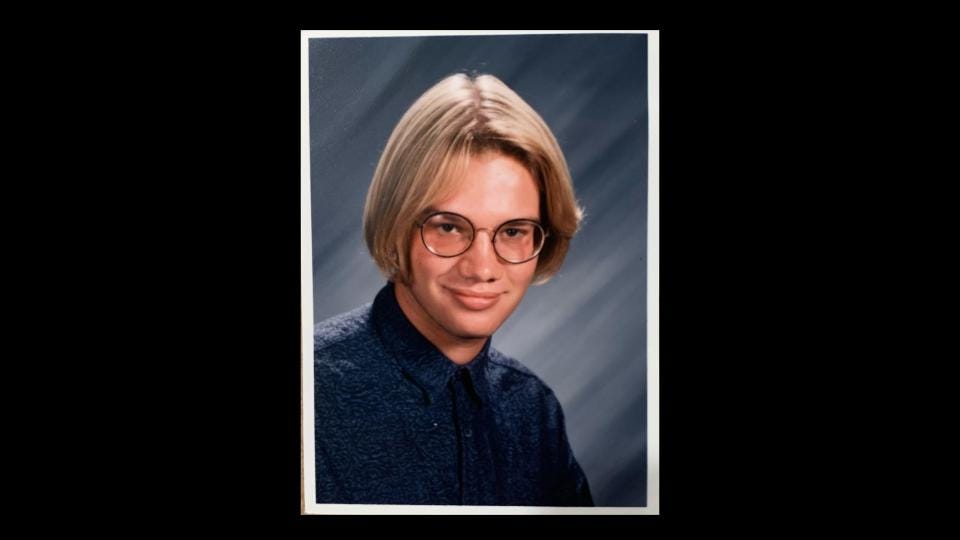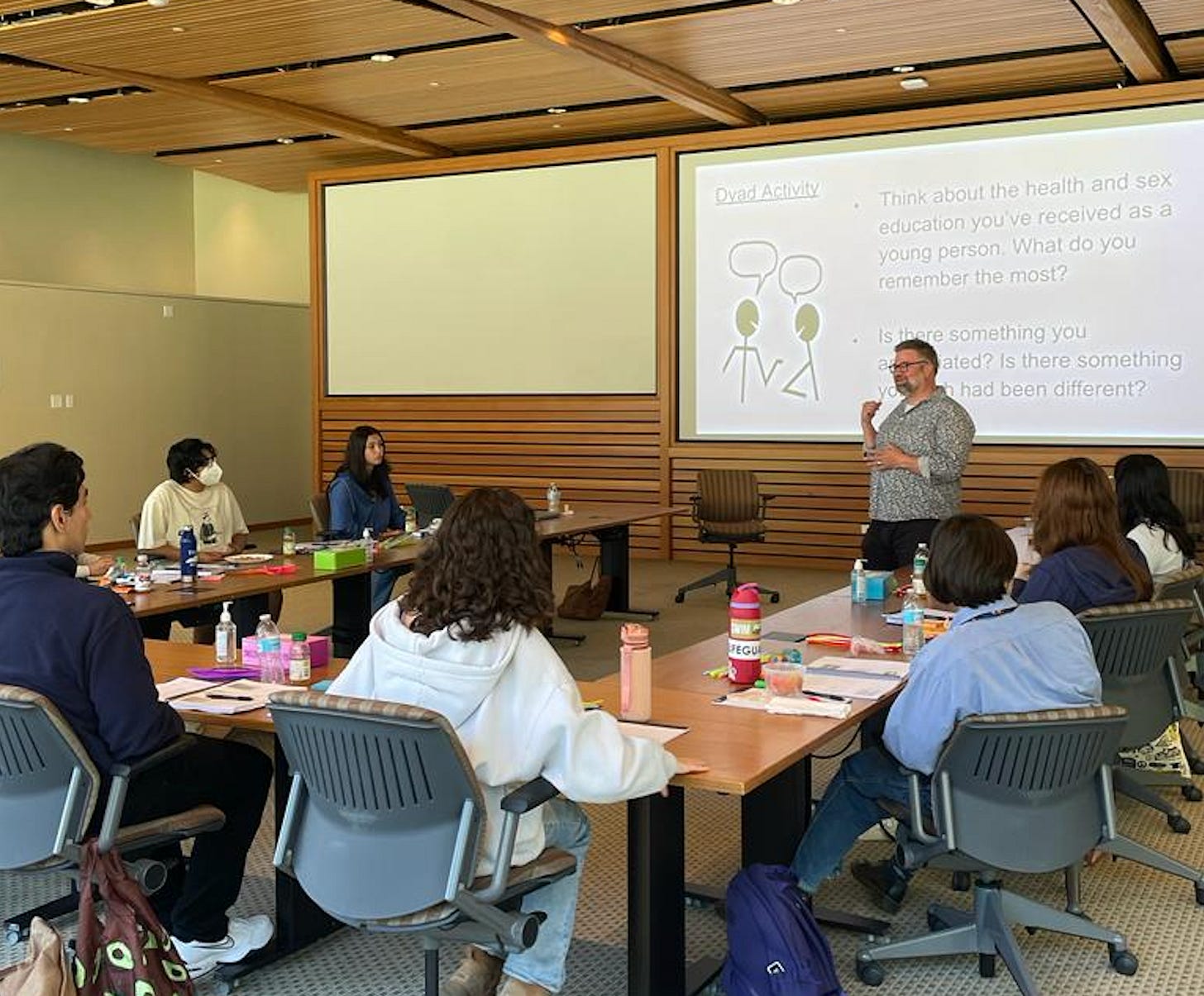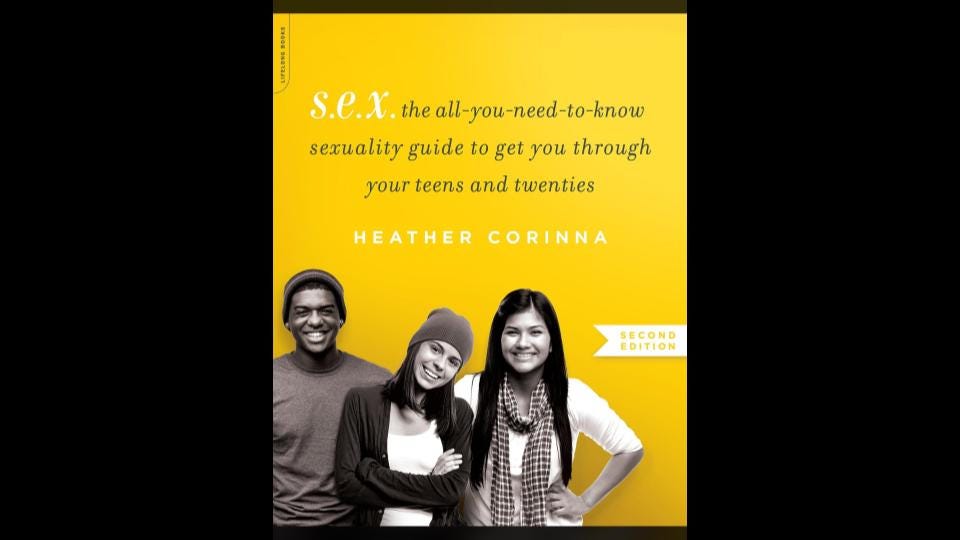I Told These Teens To Become Sex Ed Experts. Here's Why.
Young people can provide crucial knowledge and support to their peers.
My Message to Teens About Sex Ed
Recently, Futures Without Violence invited me to talk to a group of teenagers.
These young people were part of a leadership program focused on healthy relationships, which started with a week-long training institute. They met with adults who shared wisdom about relationships and sexuality as the teens prepared to initiate their own projects. I was one of the week’s first presenters, and I decided to go big with my message.
I told these teens they should all become sex ed experts.
Here’s a look at what I said, and why I think this message is important.
Sharing My Own Story
I started by talking a little about my own career path, which started when I was their age (and my hair was longer!)
When I was a senior in high school, a close friend of mine told me about how she’d been sexually assaulted. Her story was grueling, and it affected me deeply. I promised myself I would try to do something to change things, and the next year when I arrived at the University of Missouri-Columbia for my first year of college, I started volunteering in the Rape Education Office.
Because I was one of the few male volunteers, I was often tasked with talking to other young men in classes, dorms and fraternity houses. That experience really taught me the value of peer education as an effective way to reach young people.
That was almost 30 years ago, but it had a big effect on my life. Now I spend my days doing things like:
Teaching
Recruiting and coaching new teachers
Writing lesson plans
Doing interviews for podcasts, print, and TV
Giving conference presentations
Talking to parents
Over time, I’ve started to get used to people calling me an “expert.”
And that leads me to the call to action I issued to these teens:
I want YOU to become an expert, too.
Here’s why: Often - especially when sensitive issues come up, young people turn to their friends and classmates for support. With the right information and skills, teens can be powerful advocates and allies for one another.
We Talked About How Sex Ed Is Changing
These students were in California, so I shared information about some of the ways that sex education in the state has changed in recent years. Three things I highlighted:
The California Healthy Youth Act - This law requires that schools provide comprehensive sexuality education for students in grades 7-12 at least once in middle school and once in high school. This change has led many districts across California to revise their health education policies.
Affirmative Consent - SB 695 requires public high schools to develop curriculum that covers “yes means yes,” the consequences of sexual violence and how to develop healthy peer relationships built on mutual respect.
The Menstrual Equity For All Act - This law requires all middle and high schools to provide free and accessible menstrual products — both pads and tampons — in all women’s restrooms and all-gender restrooms, and in at least one men’s restroom.
I Asked Students To Share Their Own Sex Ed Experiences
Sometimes the best way to connect with others is through stories, and sex ed stories often really get people talking. Here are some of the prompts I used when asking these teens to share with their peers:
Think about the health and sex education you’ve received as a young person. What do you remember the most?
Is there something you appreciated? Is there something you wish had been different?
After I shared a little information about what schools are supposed to be covering, I followed up with some additional prompts:
How well do you think your middle and high school did at meeting these requirements?
What are some changes you’d like to see in your local schools?
What ideas do you have for helping put those changes into place?
Where could you go for support with this effort?
We then talked about how a lot of learning about sexuality and relationships happens outside of the classroom.
When I asked these teens “How do you see peers educating each other about relationships and sexuality?” I heard a wide variety of answers, including 1-on-1 conversations, texting, and TikTok.
Sharing Quality Resources
Part of becoming an “expert” is learning where to go for reliable information.
We talked about how people can learn a lot online, but their peers might need guidance about avoiding misinformation. We looked at a selection of online resources, including Amaze.org, Planned Parenthood, SexEdToGo, Scarleteen, and SexEdFiles on TikTok and Instagram.
I encouraged them to always look at a variety of sources, and we spent time looking through the excellent book S.E.X.: The All-You-Need-To-Know Sexuality Guide To Get You Through Your Teens And Twenties, which each participant received as part of the training.
LOTS Of Career Opportunities
The title of this talk was “How To Become The Expert Your Community Needs,” and as I closed, I re-emphasized that we really do need them.
I also explained how transferable these skills are, and that practicing them can lead to a wide variety of interesting, rewarding careers doing things like public health, education, providing therapy and mental health care, coaching, advocacy, and social work.
I hope to work with some of these teens as colleagues in the not-too-distant future!
If you enjoyed this post, please forward it to someone else who might like it, and click the ❤️ or 🔁 button on this post so more people can discover it on Substack. 🙏🏼









what do you tell them about all the teen girls doing only fans these days? or basically charging anybody online by asking for money on cashapp via snapchat , venmo, paypal to show their naked bodies to anyone with $. teach